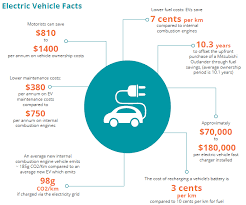
N.Y. Times news on Electric and Hybrid vehicles


-
Volkswagen Suffers More Than Rivals From Auto Industry Woes
The German automaker’s sales in the United States plunged last year, hit by tariffs and the end of tax credits for electric vehicles. -
G.M. Books a $7.1 Billion Loss as It Scales Back E.V. Ambitions
General Motors said it was writing down the value of battery and electric vehicle factories after changes in federal policy undercut demand. -
New Car Sales Are Rising Thanks to Purchases by the Well-Off
A larger proportion of new cars are being bought by affluent Americans as prices and interest rates for auto loans climb, analysts said. -
Nvidia Details New A.I. Chips and Autonomous Car Project With Mercedes
At the CES conference, Jensen Huang, the company’s chief executive, said the more efficient and powerful chip would begin shipping later this year. -
China’s BYD Surpasses Tesla as World Leader in Electric Car Sales
As the largest maker of electric vehicles in the United States, Tesla suffered more than other carmakers from the elimination of federal incentives. -
Trump Has a New Auto Loan Tax Break. Here’s Who Could Benefit.
Many Americans can take advantage of President Trump’s deduction on auto loan interest, but the tax break will provide only modest savings. -
Before Electric Vehicles Became Political, There Was the Toyota Prius
The political polarization of battery-powered cars may have started when Toyota released its first hybrid model 25 years ago. -
Tesla Robotaxis Are Big on Wall St. but Lagging on Roads
Shares of Tesla have hit new highs on optimism about the company’s self-driving taxis. But experts say Tesla is far behind Waymo, which has a big head start. -
Planning a Road Trip? Here’s How to Make It Better and Safer.
Be sure you have the right equipment and apps for weather and traffic, and don’t forget to check those tires. Here are more tips for hitting the highway. -
Massachusetts Battery Start-Up to List on Stock Exchange
Factorial, the start-up, said the listing would provide money that would help it bring new solid-state batteries to market as soon as 2027. -
Volkswagen to End Production at German Plant, a First in Company History
The auto giant stopped making cars at the plant in Dresden, which opened in 2001, as it faces weaker demand and steep U.S. tariffs. -
Ford Will Take $19.5 Billion Hit as It Rolls Back E.V. Plans
Ford Motor said the costs came from its decision to make fewer electric vehicles than it had planned and more hybrids that use both gasoline engines and batteries. -
F1: Lando Norris Overcame Doubts to Win the Drivers’ Title
But he didn’t win it by much, as Max Verstappen made a late-season charge. -
Donald E. Petersen, 97, Who Rescued Ford Motor Co., Is Dead
An ex-Marine and a 40-year company veteran, he turned a nearly bankrupt money loser into the world’s most profitable automaker. -
How Batteries Got Cheaper and Made the Electric Grid More Reliable
An early grid battery was installed in the Atacama Desert in Chile 15 years ago. Now, as prices have tumbled, they are increasingly being used around the world.
Copyright ©
2001 - 2026
Cool Fire Technology LLC